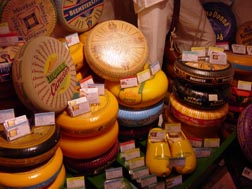I'm going to keep this legit, but this post deals with some big boy topics which could cause some tittering among the children. So if you feel the tittering, go ahead and get yourself on over to something more your speed.
Indo-Europeans had an surprising fascination, and thus many words, with two categories of things: a) things that shine, and b) things that appear blown up, like your cheeks when you are blowing out birthday candles. The root word bhel-2 carries the meaning “to blow, swell; referring to various round objects" The word also has a more intimate meaning, "the notion of tumescent masculinity”. "Tumescent masculinity"... do I need to break that down for you?
Both ball and balloon resemble a blown up, inflated object - like your cheeks. You know that piece of paper you mark on to vote, the ballot? The ballot derives it's name from an ancient form of voting - dropping small balls in one container or the other to signal your preference. If you've ever been out to the farm and seen a full-grown bull in all his glory you'd agree the shape is full and rounded. Of course, there's another indication you're looking at a bull, right? I mean, that's not an udder under there. A seldom used term, bullock, refers to castrated male bovine... which now has nothing hanging around... down there.
As I have mentioned elsewhere, sometimes the b in bhel-2 can flip vertically when it goes traveling and we wind up with a root something like phel from which we get folly and fool puffed up, but still empty inside. Turn that b back up and you'll recognize bellows has the same meaning.
Leaving the seat down... I mean leave the p down and we have the root for phallus. And phallus is not just a reference to the male apparatus, it specifically refers to swollen, erect penis - which is the difference between Michelangelo's David sculpture being phallic or not. Ironically sounding like bullock, bollix is how the Brits refer to testicles, and no surprise that they're referred to as balls. That metaphor is technically appropriate and not really a bawdy term. Speaking of bawdy speaking, that term derives from comments about phalluses, balls, and other matters best left “private”. Let's get this out there as well... if someone acts bold, what do we say? Yup, they've "got a lot of balls".
 As it often happens, we're kind of back where we started. I love the college football bowl season and a month after that concludes we finally get the Super Bowl (yeah, I used the term without permission - come and get me Goodell). We refer to these significant sporting events as "bowls" because that is simply the shape the facility in which they play - the football stadium is bowl-shaped. Originally, end-of-season games were played in famous structures - the Cotton Bowl, the Rose Bowl - and so the game itself came to be called by the structure in which it was played*. (Wouldn't it sound odd, now, if we looked forward to the Cotton Arena and the Rose Stadium. Same thing really.) Isn't it ironic that our modern day bowls are filled with young bulls in their prime - all swollen and bold. At one point in the tormented history of sport, it is rumored that athletes would shoot themselves up with the stuff their balls were supposed to make naturally. You know, to ensure that they earned a ticket to the big bowl, the Super Bowl (oops, I did it again).
As it often happens, we're kind of back where we started. I love the college football bowl season and a month after that concludes we finally get the Super Bowl (yeah, I used the term without permission - come and get me Goodell). We refer to these significant sporting events as "bowls" because that is simply the shape the facility in which they play - the football stadium is bowl-shaped. Originally, end-of-season games were played in famous structures - the Cotton Bowl, the Rose Bowl - and so the game itself came to be called by the structure in which it was played*. (Wouldn't it sound odd, now, if we looked forward to the Cotton Arena and the Rose Stadium. Same thing really.) Isn't it ironic that our modern day bowls are filled with young bulls in their prime - all swollen and bold. At one point in the tormented history of sport, it is rumored that athletes would shoot themselves up with the stuff their balls were supposed to make naturally. You know, to ensure that they earned a ticket to the big bowl, the Super Bowl (oops, I did it again).[Thanks to Mike Pearce for the extraordinarily great bowl mashup.]




